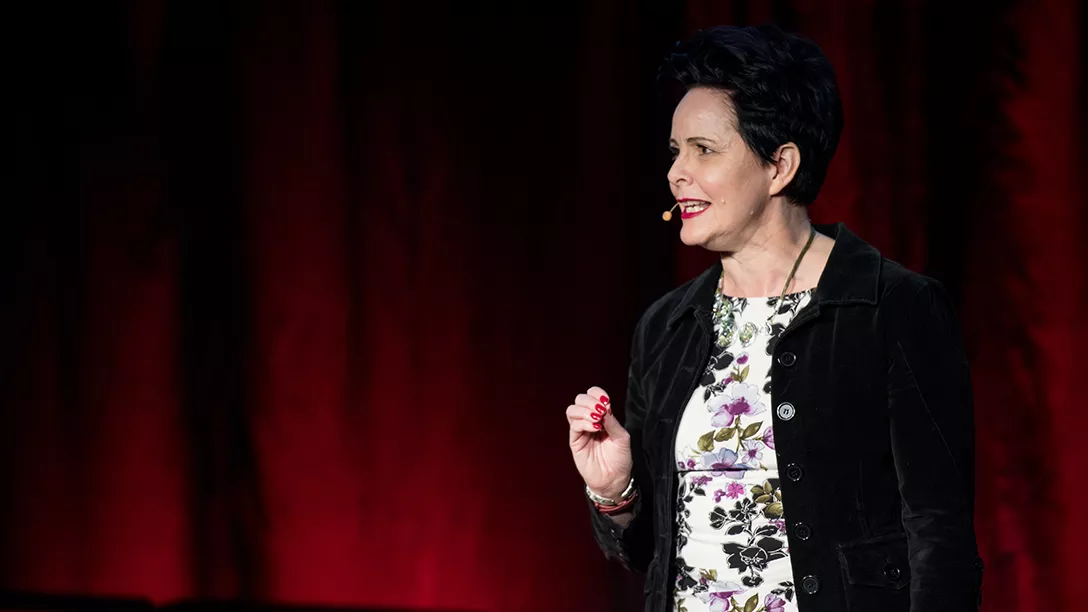What is education?
The pedagogy of wonder

In 2019 I was asked to stand on the iconic red dot and give a TEDx talk. I was given 18 minutes to talk about one important idea worth sharing.
An educator at heart, I spoke about how jumping out of a plane helped me to understand my vocation. Skydiving is about putting yourself on the line, trusting in the preparation of your guide and being willing to step out of a perfectly good plane and into the air. It’s the place where preparation and the radically new come together to enable an experience of wonder.
When I ask myself that foundational question of my vocation—What is education?—I point to my skydiving experience and my answer is this: Education is a wonder engine. Education is, at its best, a site where the transformations of wonder can be harnessed, for students and teachers alike.
Tandem skydiving and education have a lot in common. At the centre of the Venn Diagram is wonder, an experience that suspends our preconceptions, introduces us to new perspectives, and makes us reimagine our habitual ways of being in the world. Once you jump out of a plane, you will always be someone who has jumped out of a plane, and you can never quite look at all the pointy trees around you the same way again. Wonder transforms us.
It’s a tall order, living in wonder. A pedagogy of wonder demands that we share with our students the risks and the rewards of transformation. When I was a baby academic, still green and leaning heavily on the “Dr.” as an unassailable sign of my power and expertise, a student stopped me after the class and asked me: “How do you get out of bed every day knowing what you know?” Freaked out by the way that her university experience kept pulling the rug out from under her, this student was struggling with the idea that the world, which before had seemed predictable and comfortable, was not at all like she thought it was. How, in the face of this existential crisis, she wondered, could I be so calm? This student was in the freefall of transformation. She was looking for a parachute.
In that moment, I recognized something I had never really understood before: the tremendous courage it takes to be a learner, how brave our students are to come to our classrooms and say by their very presence there, “I am willing to be different—in an hour, a semester, in four years—than I am now.” Students put their selves on the line and that can be a profoundly unsettling experience.
I would never be the same after this encounter. The student’s question made me look at my comfortable world of professorial authority from a new perspective, from the point of view of learners who were knocked sideways daily by their education. I answered her: “I’m here because you’re here.” In that moment of wonder—which felt a lot like being thrown out of plane—I found my answer to the question: What is education? I realized that, if our students are to leap joyfully and wisely into their transformation, we need to provide more than content and “marketable skills.” At its best, the wonder engine provides both the occasion for transformation and the framework that students need to to develop a wonder mindset: resiliency, agency, and a sense of their own courage.
This was the moment I committed to a pedagogy of wonder. To cultivate agency, learners need to have a say in the design of my courses and in the model of assessment. To embrace transformation and build resiliency, we work together to make space in the curriculum for freefall and disorientation and we demonstrate their value as part of the process of growth by constructing assignments that allow learners to document their transformation. We rethink together the practice of ranking students, of encouraging competition, and of valuing grades as the only currency of success. Instead, we place the emphasis on the collaborative production of knowledge and reflection on our learning. In such a space, I have to work hard to resist the temptation of my own status and power and the comfort of entrenched hierarchy and authority. Instead, I have to commit to the idea that we are all tandem skydivers, partners, fellow travelers whose preparation makes freefall safe enough to be glorious. A pedagogy of wonder demands that I honour my students’ courage with my own.
If education is the wonder engine, I’m the one with the parachute, the one who gets to go along on this journey through wonder with each student while they learn to fly. It’s a privilege and a humbling, daunting responsibility. And it’s the most hopeful thing I can do with my life.